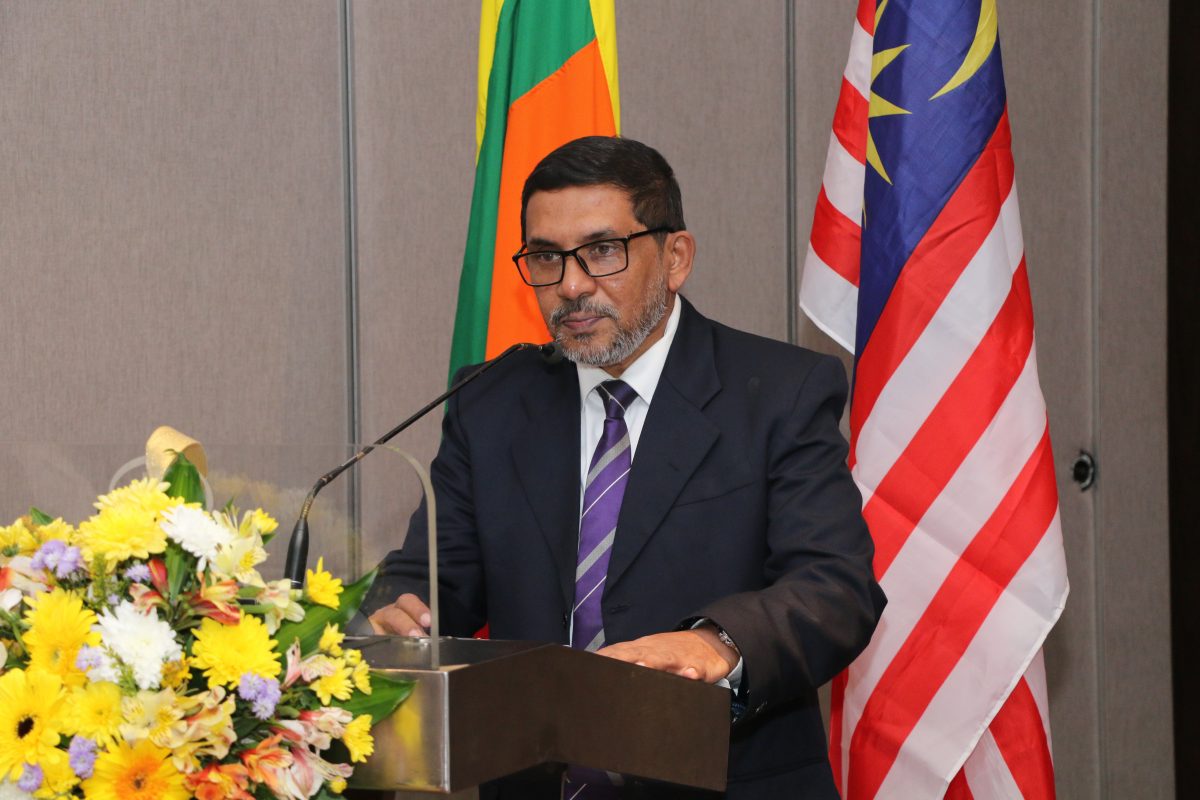Cairo – Al-Azhar University in Cairo is one of the oldest and most respected Sunni religious institutions in the world. It works hard to uphold the image of Islam by supporting tolerance, urging Muslims to avoid extremism and rendering edicts on the proper behaviour for Muslims—such as respect for one’s neighbours and the need to practice charity towards anyone in need. It also teaches the basic principles of coexistence that are entrenched in Islamic ideology and practice.
Egyptians have respected Al-Azhar scholars since the founding of the institution over 1,000 years ago; its Grand Imams have been honourable and trusted figures in society. Since Dr. Mohammed Sayed Tantawi became Grand Imam in 1996, however, Egyptians have come to distrust Al-Azhar, judging Tantawi to be more concerned with upholding the current regime than religious principles.
Despite this widespread sentiment, however, many of us were shocked to hear that Tantawi had forced a 13-year-old student to take off her niqab, an outfit that covers the female body, face and hands, and upbraided her for wearing it while he was visiting one of Al-Azhar’s institutes in Cairo.
The vast majority of Egyptians espouse moderate religious values, including tolerance for other points of view within Islam. Most of us don’t feel that wearing niqab, is a woman’s Islamic duty. But we do feel that those who wish to wear it should be able to.
This move has therefore made Tantawi a target of widespread criticism – not only from those who support wearing niqab but, surprisingly, from those who oppose it also. The criticism has become even more widespread since it spurred the Minister of High Education to subsequently ban students who wear niqab from entering the university’s residences.
Criticism has come from Egyptian human rights organisations, activists and secular writers as well as from members of political Islamic movements, including the Muslim Brotherhood, Al-Gamaa Al-Islamiya and the association of Al-Azhar Scholars Front, a group of Al-Azhar scholars who have formed their own organisation.
There was also a significant online debate about the issue: bloggers, Facebook users, YouTube visitors and various forums’ members joined people on the streets and delved into discussion and debate about the legitimacy of Tantawi’s action.
Given the furore, local and international media are covering developments around the uproar, and the legal actions that some lawyers and students have taken against Tantawi and the Minister of High Education. Women have actively protested against the Minister of High Education’s decision to ban the niqab. Beyond the lawsuit against Tantawi, there have also been inquiries from the Egyptian parliament, and calls for Tantawi to be removed from his position.
The Grand Imam has tried to defend himself from public outrage by saying that while he respects the decision to wear the niqab, he finds it unnecessary inside a classroom where the students and teachers are all females.
But an opinion emerging from the public debate is that the move to ban the niqab is symbolic of the government’s influence on and manipulation of Al-Azhar, rather than a decision stemming from religious jurisprudence.
Some media personalities have opined that Al-Azhar is worried about its waning influence as it is continuously countered by the Saudi-funded Salafi movement in Egypt, which supports a narrow interpretation of Islam and has been known to exacerbate sectarian tensions in other societies, including Pakistan and Azerbaijan. I, in fact, believe that it is this movement’s influence that has resulted in increased extremism and terrorism in Egypt in the last few years.
Others believe that Al-Azhar, which receives financial support from the Egyptian government, is toeing the government line and adopting a stance that the government favours – because the Egyptian government is also keen to counter the Saudi-influenced movement.
Whether acting independently on at the behest of the government, the implications of Al-Azhar’s stance are obvious in Egypt: women who don the niqab are usually very conservative. Many of them live in poorer areas, where the influence of political Islamic groups is most notable. Thus rightly or wrongly, many believe that the government is trying to limit how these women are involved in mainstream society—they must enter schools and other public institutions on terms defined by the state. Moreover, many see the state as trying to limit the reach of political Islamic groups by banning the attire that the state associates with them.
If limiting such groups is the aim, however, the move has backfired. The ban has provided conservative Salafi sheikhs, satellite television channels, websites and followers with the opportunity to spread their word more widely, gain sympathy and conjure more support from the public.
There is a way, however, for Al-Azhar to regain its leading role in upholding mainstream Muslim values: the state should empower it as an independent institution and allow its scholars to elect the Grand Imam, rather than appoint him itself. This move would renew public trust in Al-Azhar and allow its influence to return, helping continue its work to defeat extremist ideas. But it can only happen if the government is prepared to draw a clear line separating religion from politics.
* Yasser Khalil is an Egyptian researcher and journalist. This article was written for the Common Ground News Service (CGNews).
Source: Common Ground News Service (CGNews), 27 October 2009,
Post Disclaimer | Support Us
Support Us
The sailanmuslim.com web site entirely supported by individual donors and well wishers. If you regularly visit this site and wish to show your appreciation, or if you wish to see further development of sailanmuslim.com, please donate us
IMPORTANT : All content hosted on sailanmuslim.com is solely for non-commercial purposes and with the permission of original copyright holders. Any other use of the hosted content, such as for financial gain, requires express approval from the copyright owners.
 Sri lanka Muslims Web Portal Sri Lanka Muslims News Center
Sri lanka Muslims Web Portal Sri Lanka Muslims News Center
 Donate
Donate



The author could not have said it better. Al-Azhar was long deemed the highest and most respected authority in the Sunni Islamic world, particularly under the Ottoman Caliphate, and indeed this position continued well up to modern times. Unfortunately it has come to occupy a very low esteem among religious-minded Muslims today after its latest head Tantawi took office. Tantawi has found it fit to break away from almost everything his learned predecessor Sheikh Jaddul Haq (May Allah have Mercy on him) stood for, differing with him on a wide range of issues that have implications for the faithful worldwide. Interpreting Islam to suit modern needs is one thing, but going out of it is totally another. And this is what Tantawi has been doing all these years. He has not kept within the limits of the Shari’ah, but has gone out of it in order to please his Egyptian rulers and the Judeo-American powers that continue to exert a profound influence on it.
The rot of course began long ago, perhaps several years ago when Tantawi thought it fit to differ with his predecessor on the touchy issue of female circumcision. This is no doubt a sensitive issue, mainly due to misunderstandings created by both ignorant Muslims who don’t perform it properly and wrongly look upon it as a means to control female sexuality and the Western, Jewish-controlled media who have lost no stone unturned to sensationalize it and project Islam as a misogynist religion. We must however bear in mind that there is a consensus of opinion that the practice is Islamic and all Islamic schools of law are agreed on this. They defer only as to its obligatory nature, with Imam Shafi, Ibn Taymiyyah and more recently Sheikh Jaddul Haq in favour of its being obligatory and others who do not view it as obligatory, but strongly prescribed or recommended. If the practice had earned condemnation by human rights groups, it was the manner in which it was being performed in certain Muslim communities which was certainly not the manner prescribed in Islam which is analogous to male circumcision and involves the removal of the prepuce of the clitoris and nothing else, a practice which we see is also gaining immense popularity among western women under the name hoodectomy and promoted for its beneficial effects on both health and sex life. But Tantawi instead of studying the issue properly as befitting a scholar of his stature and setting the record straight as earlier scholars had done, thought it fit to declare the practice to be ‘unislamic’ in a fatwa he issued sometime back, breaking with all the previous scholars of Islam.
But this was not the end of his unislamic edicts. Nay, many more were to follow. Indeed the Muslim world was in for a rude shock when Tantawi, in 2002, issued a fatwa permitting interest bearing deposits, again breaking with the strong views on it held by his worthy predecessor. Tantawi as Grand Mufti of Egypt from 1986-96 had ruled that fixed interest on bank deposits were ‘halal’ and even went to the extent of suggesting that the legal terminology used for bank interest and bank accounts be changed, to avoid their being associated with the stigma of Riba. His 2002 fatwa however outdid all this and broke with the established consensus of opinion among the ulama and indeed with the Qur’an which goes to the extent of declaring war on those who consume Riba. Interestingly, this fatwa was issued at a time when the Egyptian government was becoming concerned over the lack of savings mobilization. And indeed it was only after he issued his opinion about the permissibility of bank interest as Mufti of Egypt that he was elevated by the government to the post of Sheikh of Al Azhar. Here again we see Tantawi instead of instructing Muslims to contribute to the development of Islamic banking by depositing their monies in this rapidly growing industry which is fast emerging as a viable alternative to conventional interest-based banking, telling Muslims that they could consume Riba.
Contrast this with the views of Sheikh Jaddul Haq when a state-owned Egyptian bank, Bank Misr sought his opinion on the permissibility of interest-bearing bonds. Despite the weight of the state behind it, this great scholar stood his ground and argued that interest-bearing loan transactions, whether with individuals or with banks that belong to the government, makes no difference, as these loans are loans for interest. “Nothing in the law” he declared “distinguishes between Riba among individuals and Riba between individuals and the government. The earnings of Muslims must be legal, acceptable to Allah, and above suspicion”. Such were the great days of Al-Azhar when men feared only God and did not bow down to lesser men to gain worldly benefit.
Then came Tantawi’s views on the issue of French schoolgirls wearing headscarves where he sided with the French government in its moves to ban Muslim headscarves in public schools. Covering the hair as we all know is obligatory attire for every Muslim female who has attained the age of puberty, but Tantawi felt that the state had the right to legislate against it, forgetting the basic principle in Islam that the Created (including government authority) cannot be obeyed over the Creator (Allah). And now we have Tantawi stating that the niqab too has nothing to do with Islam, but is a mere cultural tradition. Indeed he went further and attempted to force a young girl to take off her niqab which Islam gives her the right to wear if she so chooses.
It is not surprising then that Tantawi has earned the ire of all right-thinking Muslims who are concerned about the future of this prestigious institution. More so as Al-Azhar has generally tended to interpret Islam in a manner that is both consistent with the Shari’ah as well as rational and modernist. This is seen for instance in a host of issues ranging from allowing a Muslim woman to contract marriage at her own discretion to permitting music under certain circumstances, matters which scholars inspired by the Saudi tradition have tended to take a more rigid stance on. Thus it is high time that all right-thinking Muslims, particularly those who have studied in it take some action to safeguard its good name that has already suffered enough. Much is at stake. The precipitous track Al Azhar is pursuing today is a double-edged sword, one, misleading devout Muslims, the other, letting the more extremist elements inspired by the rigid Saudi tradition take over the minds of the faithful. The sooner Al Azhar is rescued, the better !